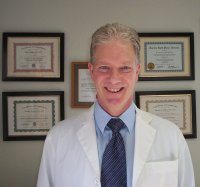- Posts: 15746
- Thank you received: 320
Lessons about Alzheimer's disease
- ScienceChic
-
 Topic Author
Topic Author
- Mountain Champion
-

Lessons about Alzheimer's disease
Psychologist Margaret Gatz explains what 25 years of research have taught her about reducing the risk of dementia.
Gwyneth Dickey Zakaib
Published online 5 August 2011 | Nature | doi:10.1038/news.2011.460
Margaret Gatz, a psychologist at the University of Southern California, Los Angeles, is investigating the causes of Alzheimer's disease. To that end, she has studied the health of more than 14,000 Swedish twins for more than 25 years. On 5 August, she will tell the annual convention of the American Psychological Association in Washington DC what the study has taught her about how to reduce risk for the disease. Nature got a preview.
What does your research show?
Somewhere in the ballpark of 70% of risk for Alzheimer's disease across a population is due to heredity. In each individual, there's some combination of genes and environment. But on average, genes have a greater influence than environment in explaining the disease.
What will be the main message from your talk at the conference?
People need to be careful not to overstate what we know about preventing Alzheimer's disease.
Is there anything people can do to lower their risk?
Physical exercise and reducing cardiovascular risk factors have the strongest evidence. We find in our Swedish twin data that midlife diabetes and obesity are significant risk factors for Alzheimer's disease so reducing those may help. But it's important to understand that these environmental factors may interact with people's genetic profiles.
What holes do you see in the research?
People are missing out by focusing on the time period just before dementia begins. Issues of risk and protection throughout life are not being emphasized.
"Now, more than ever, the illusions of division threaten our very existence. We all know the truth: more connects us than separates us. But in times of crisis the wise build bridges, while the foolish build barriers. We must find a way to look after one another as if we were one single tribe.” -King T'Challa, Black Panther
The truth is incontrovertible. Malice may attack it. ignorance may deride it, but in the end, there it is. ~Winston Churchill
Please Log in or Create an account to join the conversation.
- MichiganGal
-

- Mountain Folk
-

- Posts: 99
- Thank you received: 0
Never Say Never
Please Log in or Create an account to join the conversation.
- rocky mtn thyroid center
-

- Mountain Folk
-

I have a different opinion.
There very well may be a strong genetic link, but remember, genetics is expressed through environmental factors.
That said, what is one of the most important environmental factors?
The effect of high cortisol on hippocampal/hypothalamic destruction. This is just another fancy way of saying stress kills.
What is a great way to tell if this is happening?
An adrenal salivary test that measures the rhythm of cortisol secretion in a normal day.
The more dysfunctional the rhythm, the better chance for Alzheimers.
Dr. T
Please Log in or Create an account to join the conversation.







